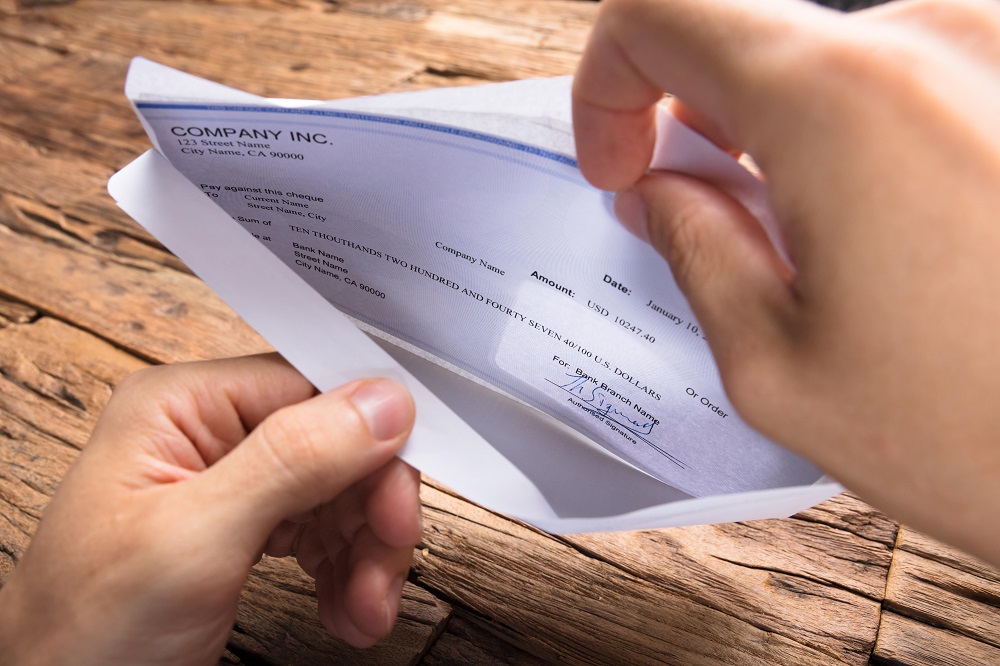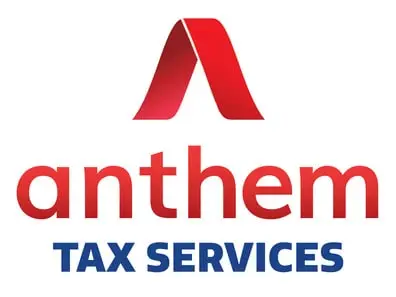
There are several reasons that could cause a garnishment on your wages, including owing money to the IRS. Wage garnishment is obviously not the ideal scenario, as it means you don’t have control over when and how much money comes out of your income. It means you never see that money in the first place, as it’s removed before you receive your paycheck.
Fortunately, wage garnishment doesn’t happen suddenly. You will receive a notification if it’s going to happen, and it’s usually a last resort. If the IRS has told you that they will be garnishing your wages, you may be able to stop it before it happens.
When Can the IRS Garnish Your Paycheck?
The IRS can only garnish your paycheck if you have an overdue tax payment. Additionally, they are required to send you a number of notices before they are able to garnish your wages. You won’t suddenly have your wages garnished without the IRS first letting you know that you still owe tax, and then that they will be enacting a garnishment if you don’t pay.
There are specific notices that the IRS must send to your address. These are:
- Notices and demands for payment – they will send one notice, and two more if they don’t receive responses from you
- A notice of intent to levy
- A notice of your right to a Collection Due Process hearing, which must be sent by certified mail
The notice of your right to a CDP hearing is the last step before wage garnishment. The hearing gives you the chance to either ask for a payment agreement or dispute what you owe. You have 30 days from the date on the letter to ask for a hearing, and the IRS can start taking money from your paycheck 15 days after the deadline.
There are some situations where the last step might be skipped, and a levy is applied straight after the notice of intent. If this happens, you can still request a CDP hearing.
Facing a wage garnishment?
Our tax relief experts can help keep the IRS out of your life
Oops! We could not locate your form.
How Long Does It Take for the IRS to Garnish Your Wages?
After you receive the first notice asking for payment, the situation could progress to the IRS within a matter of weeks. It will generally take between 11 and 25 weeks for the IRS to issue the levy but it could be faster, especially if you have an IRS revenue officer.
How Much of Your Paycheck Can the IRS Take?
Although the IRS can garnish your wages, they can’t take all of your paycheck. They use certain rules to determine how much of your paycheck is exempt, and therefore how much you get to keep. This includes things like how many dependents you have and your filing status. To find out how much could be taken, you can look at IRS Publication 1484.
As well as garnishing your wages, the IRS also has the ability to take money from your bank account, Social Security income, and accounts receivable.
How Long Does a Wage Garnishment Last?
The IRS won’t garnish your wages forever. Any levy that is applied will stop once you have repaid any taxes and fees that you owe or you are otherwise in compliance. This could mean that you finish paying off your tax bill, you set up a payment agreement, or the IRS runs out of time to collect your taxes. Other options are to prove that the tax levy is creating a hardship for you, file an offer in compromise, or prove that the tax levy is wrong.
When a tax levy is applied to your wages, the IRS will get in touch with your employer to let them know they have to send some of your wages directly to them. After the tax levy is over, you can ask the IRS to fax the release to your employer or you will have to wait until your employer receives it by mail. Looking for more info on an IRS Tax Levy?
How Can I Stop a Wage Garnishment?
If you want to stop a garnishment on your paycheck, the first step is to try and pay what you owe. If you can’t pay it all in one amount, you can set up an installment agreement with the IRS. The Collection Due Process hearing is your last chance to do this before the levy is applied.
Alternatively, one of the options in the previous section will end the garnishment. If you need help, you can get professional assistance from our tax relief specialists to deal with your wage garnishment. This can help you to work out the best way to resolve the situation.
There are several reasons that could cause a garnishment on your wages, including owing money to the IRS. Wage garnishment is obviously not the ideal scenario, as it means you don’t have control over when and how much money comes out of your income. It means you never see that money in the first place, as it’s removed before you receive your paycheck.
Fortunately, wage garnishment doesn’t happen suddenly. You will receive a notification if it’s going to happen, and it’s usually a last resort. If the IRS has told you that they will be garnishing your wages, you may be able to stop it before it happens.
When Can the IRS Garnish Your Paycheck?
The IRS can only garnish your paycheck if you have an overdue tax payment. Additionally, they are required to send you a number of notices before they are able to garnish your wages. You won’t suddenly have your wages garnished without the IRS first letting you know that you still owe tax, and then that they will be enacting a garnishment if you don’t pay.
There are specific notices that the IRS must send to your address. These are:
- Notices and demands for payment – they will send one notice, and two more if they don’t receive responses from you
- A notice of intent to levy
- A notice of your right to a Collection Due Process hearing, which must be sent by certified mail
The notice of your right to a CDP hearing is the last step before wage garnishment. The hearing gives you the chance to either ask for a payment agreement or dispute what you owe. You have 30 days from the date on the letter to ask for a hearing, and the IRS can start taking money from your paycheck 15 days after the deadline.
There are some situations where the last step might be skipped, and a levy is applied straight after the notice of intent. If this happens, you can still request a CDP hearing.

Owe Back Taxes?
Our tax relief experts are only one phone call or form submission away…
How Long Does It Take for the IRS to Garnish Your Wages?
After you receive the first notice asking for payment, the situation could progress to the IRS within a matter of weeks. It will generally take between 11 and 25 weeks for the IRS to issue the levy but it could be faster, especially if you have an IRS revenue officer.
How Much of Your Paycheck Can the IRS Take?
Although the IRS can garnish your wages, they can’t take all of your paycheck. They use certain rules to determine how much of your paycheck is exempt, and therefore how much you get to keep. This includes things like how many dependents you have and your filing status. To find out how much could be taken, you can look at IRS Publication 1484.
As well as garnishing your wages, the IRS also has the ability to take money from your bank account, Social Security income, and accounts receivable.
How Long Does a Wage Garnishment Last?
The IRS won’t garnish your wages forever. Any levy that is applied will stop once you have repaid any taxes and fees that you owe or you are otherwise in compliance. This could mean that you finish paying off your tax bill, you set up a payment agreement, or the IRS runs out of time to collect your taxes. Other options are to prove that the tax levy is creating a hardship for you, file an offer in compromise, or prove that the tax levy is wrong.
When a tax levy is applied to your wages, the IRS will get in touch with your employer to let them know they have to send some of your wages directly to them. After the tax levy is over, you can ask the IRS to fax the release to your employer or you will have to wait until your employer receives it by mail. Looking for more info on an IRS Tax Levy?
How Can I Stop a Wage Garnishment?
If you want to stop a garnishment on your paycheck, the first step is to try and pay what you owe. If you can’t pay it all in one amount, you can set up an installment agreement with the IRS. The Collection Due Process hearing is your last chance to do this before the levy is applied.
Alternatively, one of the options in the previous section will end the garnishment. If you need help, you can get professional assistance from our tax relief specialists to deal with your wage garnishment. This can help you to work out the best way to resolve the situation.


